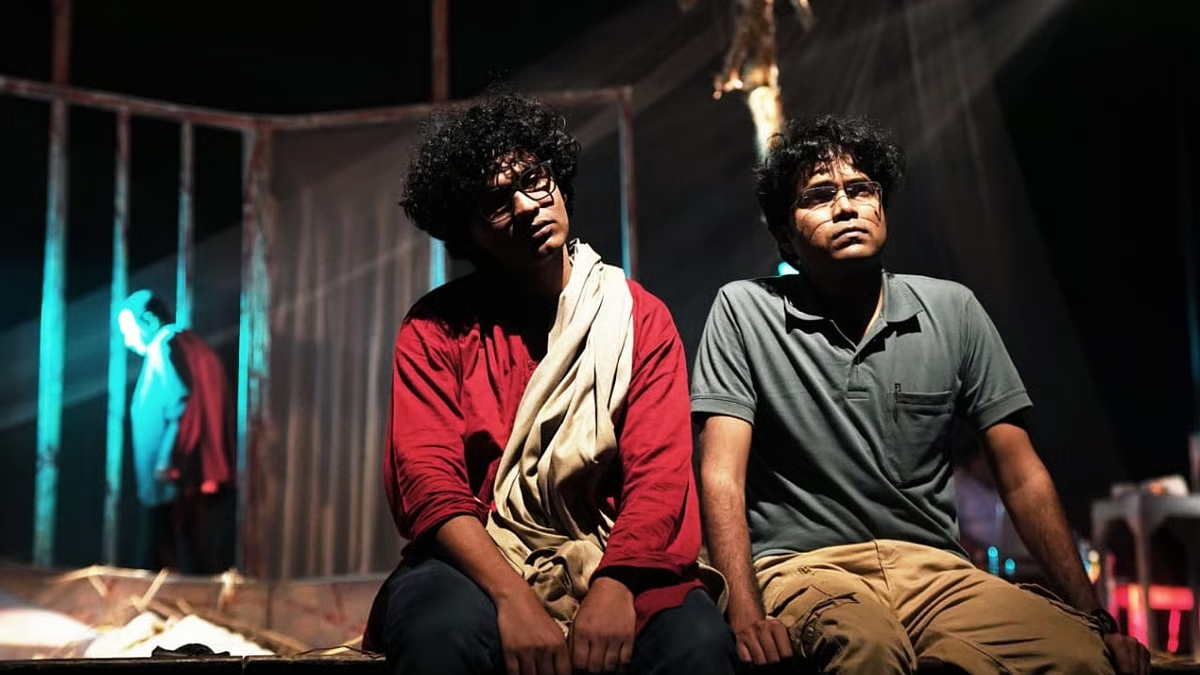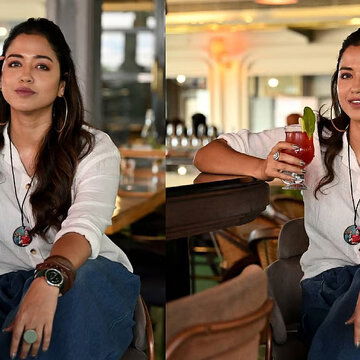Badal Sarkar's plays unflinchingly address the issues of contemporary times. The reverberations of his seminal work 'Tringsha Shatabdi' (The Thirtieth Century) seem to echo once again through the craftsmanship of this generation's young playwright, Abhra Dasgupta. "6 August 1945," which was based on 'Tringsha Shatabdi,' was recently performed at the Academy. This play effectively expresses the enduring demand, "No to war, we want peace," from beginning to end.
Innocent people worldwide are scorched by the flames of unrest. The playwright, through the play's dialogue, has explicitly stated that the relevance of this piece first struck him after witnessing the wars between India-Pakistan and Iran-Israel. Undoubtedly, the collective endorsement from the audience present that day elevated this production to another dimension.
Directed by Swagata Chattopadhyay, the play opens with a theater director who is deeply terrified internally. However, his fear is not for his own life, but for the staging of his play.
He was perpetually anxious that his play might be shut down at any moment. Or that the doors of the auditorium might be closed because of this production. Political pressure could also be brought to bear. After all, he had faced such problems before. But the question arises: who would want to censor a play whose central theme is 'No to war, we want peace'?
Stemming from this fear, the play's director, Aniruddha, gradually sinks into solitude. He increasingly seeks refuge in various intoxicants. August 6, 1945 - that accursed day of the world's first nuclear bomb. If only this date of shame and infamy could be erased from history. Perhaps then, hundreds of thousands of disabled children would not have been born into this world. Countless vibrant lives would not have been lost.
The play employs extremely subtle lighting, conceptualized by Abhra Dasgupta. The stage is remarkably simple. There's no ostentation, yet it's complete. The lighting and stage design harmonize perfectly with the play. Soumen Chakraborty, Bajrakhal, Moumita Dutta, Parthasarathi Sarkar, and others have delivered excellent performances. Tanmoy Pal is responsible for the background score.











